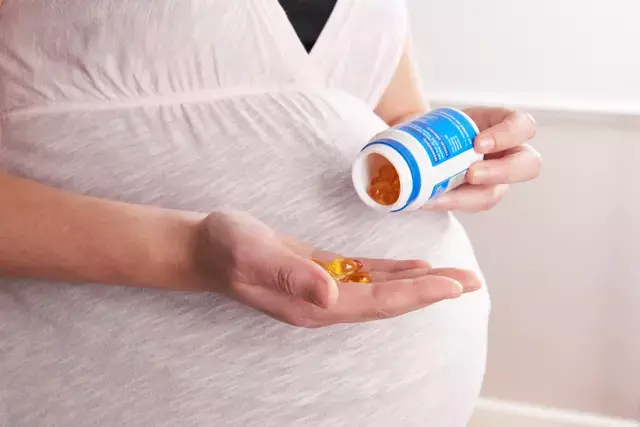- Home
- Medical news & Guidelines
- Anesthesiology
- Cardiology and CTVS
- Critical Care
- Dentistry
- Dermatology
- Diabetes and Endocrinology
- ENT
- Gastroenterology
- Medicine
- Nephrology
- Neurology
- Obstretics-Gynaecology
- Oncology
- Ophthalmology
- Orthopaedics
- Pediatrics-Neonatology
- Psychiatry
- Pulmonology
- Radiology
- Surgery
- Urology
- Laboratory Medicine
- Diet
- Nursing
- Paramedical
- Physiotherapy
- Health news
- Fact Check
- Bone Health Fact Check
- Brain Health Fact Check
- Cancer Related Fact Check
- Child Care Fact Check
- Dental and oral health fact check
- Diabetes and metabolic health fact check
- Diet and Nutrition Fact Check
- Eye and ENT Care Fact Check
- Fitness fact check
- Gut health fact check
- Heart health fact check
- Kidney health fact check
- Medical education fact check
- Men's health fact check
- Respiratory fact check
- Skin and hair care fact check
- Vaccine and Immunization fact check
- Women's health fact check
- AYUSH
- State News
- Andaman and Nicobar Islands
- Andhra Pradesh
- Arunachal Pradesh
- Assam
- Bihar
- Chandigarh
- Chattisgarh
- Dadra and Nagar Haveli
- Daman and Diu
- Delhi
- Goa
- Gujarat
- Haryana
- Himachal Pradesh
- Jammu & Kashmir
- Jharkhand
- Karnataka
- Kerala
- Ladakh
- Lakshadweep
- Madhya Pradesh
- Maharashtra
- Manipur
- Meghalaya
- Mizoram
- Nagaland
- Odisha
- Puducherry
- Punjab
- Rajasthan
- Sikkim
- Tamil Nadu
- Telangana
- Tripura
- Uttar Pradesh
- Uttrakhand
- West Bengal
- Medical Education
- Industry
High Dose DHA in Pregnancy Might Reduce Risk of Early Preterm Birth

Early preterm birth (EPB) is of great concern as these births result in the highest risk of infant mortality, child disability, and societal cost. A recent study recommends clinicians to prescribe 1000 mg docosahexaenoic acid (DHA) daily during pregnancy to reduce EPB in women with low DHA status. The research has been published in EClinical Medicine on May 17, 2021.
Several meta-analyses have concluded n-3 fatty acids, including docosahexaenoic acid (DHA), reduce early preterm birth (EPB, < 34 weeks), however, the amount of DHA required is unclear. Therefore, Dr Susan E Carlson and her team hypothesized that 1000 mg DHA per day would be superior to 200 mg, the amount in most prenatal supplements.
It was a randomized, multicentre, double-blind, adaptive-design, superiority trial of 1032 women with singleton pregnancies and 12 to 20 weeks gestation. They were randomly assigned to receive either high dose DHA (1000mg; n=540) or low dose DHA (200 mg; n=492). The planned adaptive design periodically generated allocation ratios favoring the better performing dose. The major outcome assessed was EPB by dose and by enrolment DHA status (low/high). The researchers determined Bayesian posterior probabilities (pp) for planned efficacy and safety outcomes using intention-to-treat.
Key findings of the study were:
- Upon analysis, the researchers found that higher dose had a lower EPB rate [1.7% (9/540) vs 2.4% (12/492)] especially if participants had low DHA status at enrolment [2.0% (5/249) vs 4.1%, (9/219)].
- They noted that the participants with high enrolment DHA status did not realize a dose-effect [1000 mg: 1.4% (4/289); 200 mg: 1.1%].
- They further found that the higher dose was associated with fewer serious adverse events (maternal: chorioamnionitis, premature rupture of membranes and pyelonephritis; neonatal: feeding, genitourinary and neurologic problems, all pp>0.90).
The authors concluded, "Clinicians could consider prescribing 1000 mg DHA daily during pregnancy to reduce EPB in women with low DHA status if they are able to screen for DHA."
For further information:
Medical Dialogues Bureau consists of a team of passionate medical/scientific writers, led by doctors and healthcare researchers. Our team efforts to bring you updated and timely news about the important happenings of the medical and healthcare sector. Our editorial team can be reached at editorial@medicaldialogues.in.
Dr Kamal Kant Kohli-MBBS, DTCD- a chest specialist with more than 30 years of practice and a flair for writing clinical articles, Dr Kamal Kant Kohli joined Medical Dialogues as a Chief Editor of Medical News. Besides writing articles, as an editor, he proofreads and verifies all the medical content published on Medical Dialogues including those coming from journals, studies,medical conferences,guidelines etc. Email: drkohli@medicaldialogues.in. Contact no. 011-43720751


